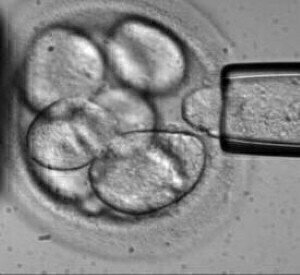News & Views
Project to Advance Understanding in Particle Physics
Jun 23 2019
A four year European Community project structured to address open questions in the strong interaction studies in theory and experiment – a cornerstone of the Standard Model (SM) of particle physics - has received EU approval under the Horizon 2020 framework and funding of 10 million euros.
Attracting an active community of about 2500 researchers in Europe, such questions include a full understanding of the three-dimensional structure of the proton; the spectroscopy of hadrons and their exotic states; the properties of the hot and dense quark-gluon plasma; precision studies of the SM. These research topics are experimentally studied mostly by particle collisions at low (GeV range) and high (up to 14 TeV) energies, which require continuous developments in state-of-the-art detectors, data acquisition systems, beams and targets, as well as in the underlying theory.
The STRONG-2020 project, set to build upon and go beyond the previous Hadron Physics HP, HP2 and HP3 projects in the framework programmes of FP6 and FP7, is strongly supported by NuPECC (the Nuclear Physics European Collaboration Committee) and will provides transnational access to six world-class research infrastructures in Europe, which complement each other in particle beams characteristics (COSY, MAMI, LNF-INFN, ELSA, GSI, CERN) and virtual access to open-source codes and automated/simulation tools. The project consortium includes 44 participant institutions, embracing 14 EU Member States, one International EU Interest Organization (CERN) and one EU candidate country (Montenegro).
Together with host institutions of other 21 countries, participating in the activities without EU benefits, STRONG-2020 involves research in 36 countries. Contributing to fundamental research for physics beyond SM, the project will impact in other scientific sectors, such as astrophysics and theories of strongly coupled complex systems in condensed matter; provide new tools and methodologies that will upgrade European Research Infrastructures, while developed technologies will also impact in medicine (diagnostic tools, cancer treatment) and industry (line-scan cameras, 3D-magnets technology) and may also lead to advances in computing/machine learning.
Digital Edition
Lab Asia 31.2 April 2024
April 2024
In This Edition Chromatography Articles - Approaches to troubleshooting an SPE method for the analysis of oligonucleotides (pt i) - High-precision liquid flow processes demand full fluidic c...
View all digital editions
Events
Apr 25 2024 Istanbul, Turkey
Apr 28 2024 Montreal, Quebec, Canada
May 05 2024 Seville, Spain
InformEx Zone at CPhl North America
May 07 2024 Pennsylvania, PA, USA
May 14 2024 Oklahoma City, OK, USA


















